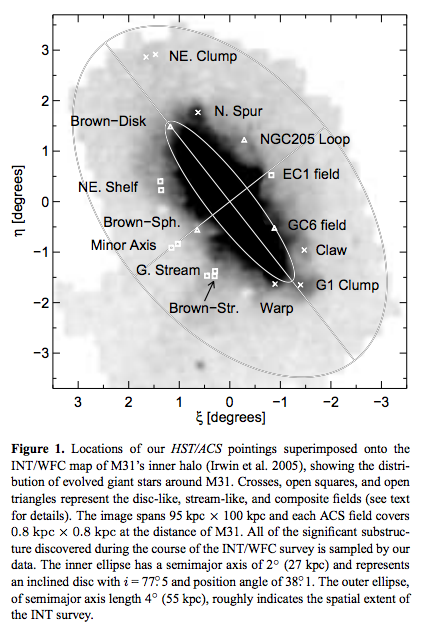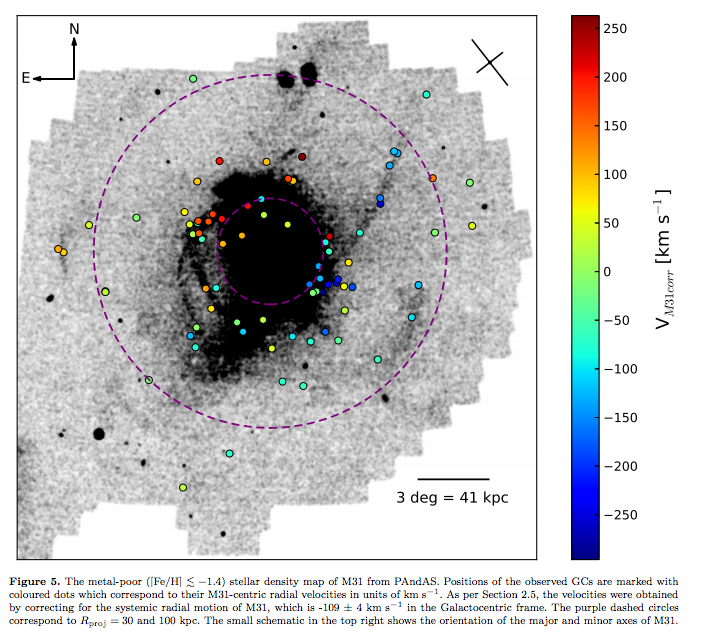The Nature and Origin of Substructure in the Outskirts of M31 -- II. Detailed Star Formation Histories

I am still playing catch up on papers, and I've just woken up early here in San Francisco and have a small amount of time before I have to prepare for my talk today. So, this will be quick. The topic again is our nearest largest companion, the Andromeda Galaxy, especially working out the history of how stars have formed in the (relatively) inner regions of the galaxy. It might seem a little strange that we can work that out, because all we can see is stars, but with the magic of science, it is possible. That's the topic of this new paper by postdoctoral researcher, Edouard Bernard . This beautiful science is done with the Hubble Space Telescope. The first thing you need to do is decide where to look. So, here's the fields we looked at One of the sad things is that the area Hubble can image (its field of view) is tiny compared to the extent of Andromeda, and so we are doing key-hole surgery in select areas on interesting bits of Andromeda, especially prominent bits
